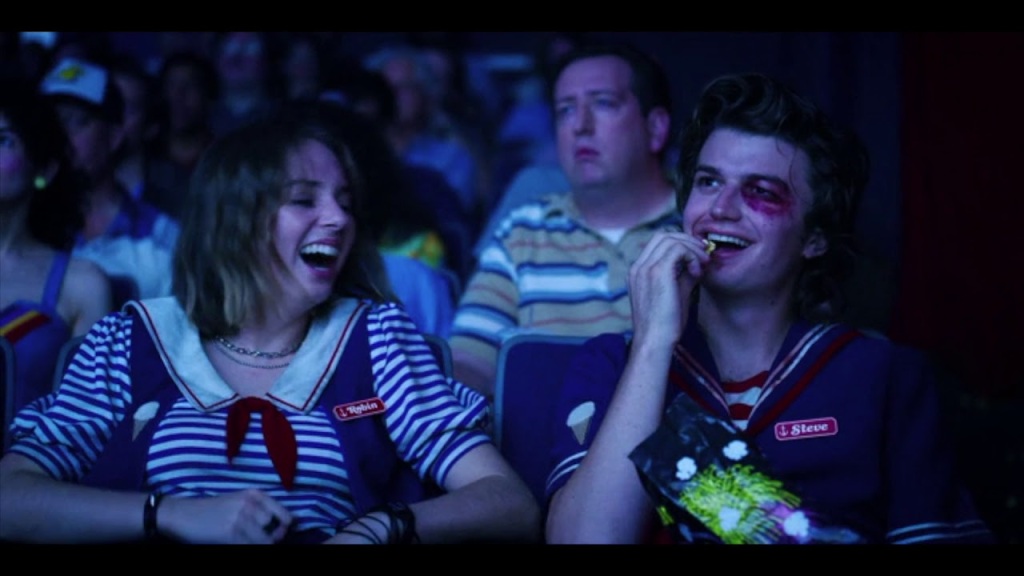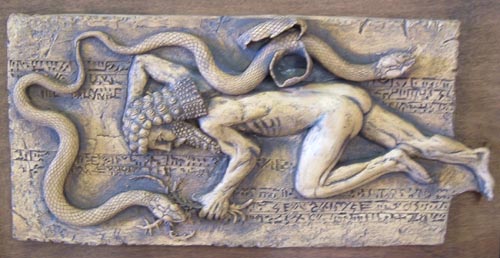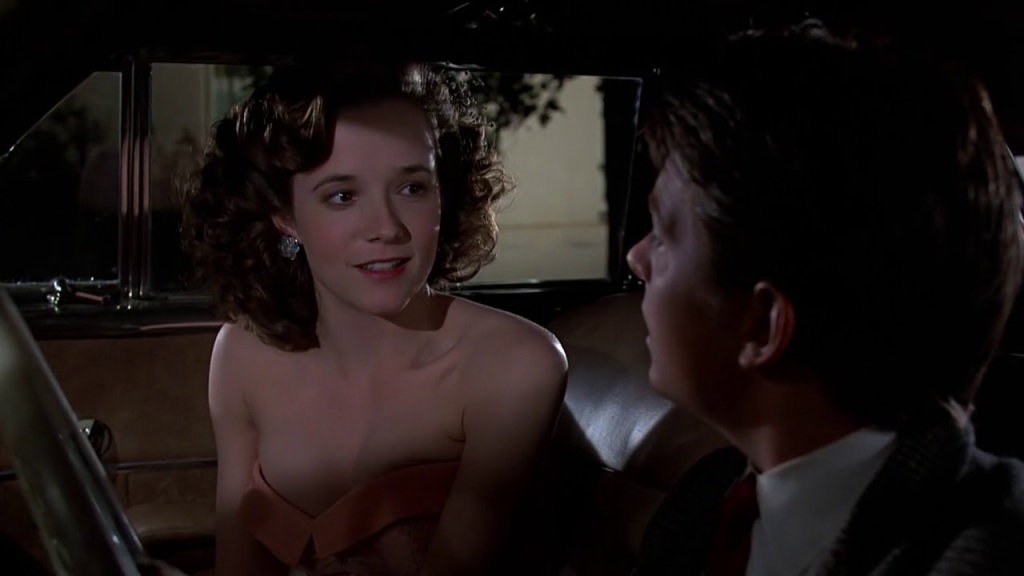Dad and I watched Back to the Future last week and it was my first time watching and I really enjoyed it! Of course had about a million thoughts which ended up being WAY too long, so this is not really an organized essay but two parts of two completely different stream of consciousness. Thinking maybe if I continue watching things with my dad I’ll try and do more writeups that are like this that are more casual since I think it could be fun. Anyways, warning for being fairly unedited and thus much more long winded:
Part 1: Nostalgia Lasagna – Thinking about the movie, watching Stranger Things and other nostalgic media with my Dad, and going hmmmm about generational and cultural differences and perceptions of media from each others’ time.
Part 2: This Whole Thing Smacks of Gender – I was surprised that I really liked Marty, so here are my uwus and also my analysis
Nostalgia Lasagna
Since I was watching this with my dad it does kind of put one in the “thinking about your own family and generational stuff” mode, which I guess is part of why the movie remains a classic. I definitely think about my dad a lot, and what he’s told us about his own childhood growing up in the same city and house I and my siblings grew up in, and how different but also similar he is to us. As someone who was definitely attuned with the American culture at the time as well as being Chinese and growing up with that Cantonese-speaking influence, it’s definitely really interesting and unique from the more default white suburban California depicted in the movie, but still touches on that sort of feeling. I don’t really have a nostalgic connection to 80s media and didn’t really grow up watching older stuff, I’m not as deeply affected by it as he is. In some ways I kind of have been weary of the 80s fad currently that’s definitely marketing to the boomer and boomer adjacent nerd audience, which is probably why I don’t really respond so well to nerdy boy storylines nowadays. Nothing against nerdiness on its own, but like, we watched Stranger Things and I enjoyed it a fairly normal amount but my dad REALLY resonated with it and is probably one of the pieces of modern media that he actually sees his experience in–as a kid on a bike, in the 70s-80s, hanging out with friends and seeing Star Wars eleven times with the money he made from doing a paper route and being amazed by the scale of the star destroyer, and accidentally seeing The Shining and getting spooked.
me: how do you accidentally see a movie…didn’t you check like the description of the movie before you saw it
him: well back then u didn’t really do that u just went to see whatever movie for fun) – A half remembered conversation
Things must have felt so fresh and cool back then, when the general American pop culture was still fairly shared and common, and not like today, where he bemoaned to me that there are so many different little medias that everyone has such specific interests that are separate from each other. Diversity in media is very much a good thing, and I’m constantly overjoyed now about the various options to choose from nowadays, both from my peers as well as in the general mainstream. I’m pretentiously glad to be part of niche fandoms and circles where I can find and make the content that is indulgent and satisfying to me if I can’t find it elsewhere, and be happily incomprehensible. But I can also see his perspective as well, where having at least a kind of cultural canon allows you a language, something that can be used both to understand and immediately be understood by general people around you. I understand this, though it also can be grating, like when we were watching Stranger Things and I could obviously tell a lot of things were references and speaking in that language of recognition, but it felt like it was speaking to that old time in boomer nostalgia language, without having much of anything new to say for the current day and age as well. The latest season especially, for me, felt a lot like being a child and going with your parents to meet a family friend who talks only to your parents and not to you the whole time. And that’s fine, maybe its just a matter of taste. But whenever I feel media go back in time to speak to a nostalgia, I’m just like, “so what is the point?” Seeing this language of these symbols and characters means nothing to me, inherently; the thing that make it special to me is because of people of my dad’s generation who decided that it was meaningful and important to them enough to carve into the general culture. Symbols are meant to communicate, and as time goes on, to be in conversation and gain meaning through time, not be static. Mythology, and history for that matter, exist not just in the past, as a static entity, but gain significance as we observe and reobserve and recontextualize through our new experiences.

So, back to Back to the Future. I knew the general concept of it from a variety of sources and references that’s like I said engrained into the Culture™ at large. (Rick and Morty, Ready Player One, the general way time travel is treated in nowadays etc etc) Its always interesting when there are works that have influenced the tropes of the current cultural landscape and returning to that. I guess since BTTF for one is also a nostalgic movie from the 80s about the 50s but it is also very 80s and just kind of one of those things that is always being referenced with regards to the current wave of 80s nostalgia. Layers. A nostalgia lasagna, if you will. So when my Dad was like “hey it’s gonna leave netflix in a couple days lets watch it” I was glad to take the opportunity and once again get slapped in the face with not just the Thoughts, but the Feelings as well.
The Oedipus jokes are just kind of already there and I’m sure there’s plenty of good laughs to be found, but on a serious note I do feel like the classic myth has a similar concern, even if its outcome is very tragic and very Greek and much more about like, the inevitability of fate and folly of hubris and whatnot. The idea about origins, about what if where you come from irreversibly shapes you because of the nature of your birth and your parents’ situation and whatnot. BTFF is very American and self-deterministic in contrast; Marty fears becoming like his dysfunctional parents, but in his case destiny can literally be changed, and it isn’t a tragedy. On a personal level, for a lot of us Asians, there’s always a lot of huffing and puffing over the idea of family as well, of seeing how our parents and grandparents shaped us, whether people are immigrants themselves or descended from them, and the issues/trauma that get passed down. We have a sense of self-determination, but also that sort of sense of connection as well which can be positive or frustrating or both.

One of which was like how the movie itself is fairly lighthearted and takes its premise from a perspective of fun rather than hard logic or like, the temporal horror of time travel paradoxes, it doesn’t really bother with that too much (i haven’t watched the other movies, so idk how the worldbuilding works. And frankly I don’t really WANT to know). There is the fear and prospect of death, but it’s one where the time travel works, and Marty is able to reverse Doc’s death and make it so that it didn’t happen in the first place. In some other stories they use that premise to explore the whole thing about equivalent exchange or some shit or how that’s just fundamentally an impossible thing to turn back (from the very earliest stories with Gilgamesh and Enkidu, Death’s inevitability and irreversibleness is emphasized.) But here we’re allowed to reverse death, and even change circumstances for the better without too much heavy consequences. It’s nice, and there’s a strange lightness to the movie that doesn’t quite dip into the angst that its premise suggests and hints at, while also having very solid stakes. I think that’s part of what makes it rewatchable to folks. Compelling, but doesn’t make you too sad despite the concepts. There’s a kind of eternality and iconic-ness about the story despite it being about time, being about change, and being situated in a very specific cultural context. Maybe that’s the drive for nostalgia, and the thing that makes classics stick, when they can speak to a feeling that is inherent in our human storytelling desires, our “what if” situations, that goes beyond just nostalgia for a certain time period. It’s telling that in this initial movie, the time travel isn’t about going to the distant past or future (that’s for sequels I guess), in the tradition of say H.G Wells, but something more intimate regarding one’s own family and place, seeing the origins of where you came from (whether birth, or destiny, or whatnot). And I think that’s a concept that is deeply relatable, even if, like me, you can’t really relate to the one specific picture of American Culture that is being portrayed.
This Whole Thing Smacks of Gender
Speaking of American Culture, moving on to the other thing I wanted to talk about: I was surprised by how much I really loved Marty as a character, since usually with this kind of stuff from the era I enjoy the ride of the plot but don’t always care too much for the protagonists but he was very fun and chill? I liked how he was shown to be a relatively cool kid with frustrations but like not exaggeratedly snarky and not too cool to like sincerely be friends with the eccentric Doc and be supportive of his work, even if he doesn’t really get it. I thought their relationship was super random but very sweet and believable, maybe because it’s so random. Also I think maybe bc later and more recent media has more main characters similar to Marty’s dad i.e., insecure nerds who are a little creepy and bitter towards Cool Kids but need to learn how to Be Good Enough to Get the Girl They Deserve I was just like huh!! He has frustrations, but they’re more specific to his situation and not really out of a sense of entitlement. Marty isn’t shown to be super popular or an extreme outcast or underdog, he’s just kind of ordinary. He comes across as a cool kid less because of a sense of status but because despite his frustrations and fears he seems fairly comfortable with himself (and thus feels frustrated and threatened when he sees his father’s lack of confidence in his own timeline)
Also because he doesn’t have a “pursue girl” storyline due to already having a girlfriend and stable relationship, the story having the opposite and having a “politely repel girl” storyline is a fun reversal. I was talking to my dad after the movie and going “this story is so funny bc it’s not about trying to become cool, it’s about the pitfalls of how accidentally being TOO cool and attractive becomes the problem lool.” Which I find interesting, since that’s often a common plotline and relatable experience for girls I feel, while with male characters is less so and usually played for laughs. Though like, while the mom plot was full of gags centered around the discomfort and accidental incest concept, it was interesting to see it be less “ew gross cooties” sort of thing, since while Marty is weirded out by the situation he still does obviously care about her as a person while also keeping his distance so because of that their interactions end up being a lot less creepy and weird than well, a lot of “guys interacting with girls” scenes in like, everything.
At first I gotta say I was initially dismissive of Lorraine, since while I knew there was going to be the incest-fear running conceit, that wasn’t the initial thing that made me cringe. When we first saw her young self making goo-goo eyes at Marty when she first rescues him I wanted to roll my eyes because I was like “ah, I see where this story is going, he’s going to act like a Bare Minimum Decent Guy and because the bar is extremely low enough for her to get all swoony and bashful give me a break” But the joke is on me!! Because I am also apparently too easily impressed by guy characters who drink their Chill Decency juice. So I really can’t fault her for that and being very enthusiastic even if it did make everything awkward.
The whole fake date rape/rescue plot was pretty hhhh such since it was a real “well here we go” moment but I do find it functional as like, an emotional climax to contrast with like the physical danger climax later so I surprisingly didn’t feel as gross about it as I do usually with similar scenes. It’s one of those stories where there’s a lot of moving parts, so the characters have to be fairly simple but have really strong designs and clear motivations and in that sense I thought it worked really well structurally. The entire scenes in the car are one of those things that feels like “the whole thing smacks of gender” as Dril puts it. But not necessarily in an automatically negative way I feel.

The movie’s been out for like what 40 years now I’m sure there’s been loads of analysis already but yeah something about Marty’s set-up plan to feign making advances to Lorraine, expecting her to be repulsed and horrified, as a good innocent 50s girl would do, but then also not being able to go through with it and also being thrown off when she instead tries to take initiative is just. Something something about the gender expectation of women always being pure/innocent needing to be protected/etc from sex alongside the expectation of men always wanting and being forceful about it without leaving room for the idea of women ever having desire or men ever feeling uncomfortable. Maybe that’s the actual reason why Lorraine loses interest when she kisses Marty, is that up until that moment she had expected him to play that role, and when he just doesn’t he just doesn’t fit into her conception and thus becomes neutered to her, in that sense, hence her dismissal of saying “feels like I’m kissing my brother.” Since while she is forward, she still plays by the letter of the rules–she takes initiative and stalks Marty to the Doc’s house, but specifically to ask him to ask her out, after all. Marty not reciprocating is due of course specifically to the whole incest discomfort thing but on its own is interesting as like the usual expected gender script being unfulfilled. Which later is fulfilled for her, when George does manage to rescue Lorraine for real in the end. So while it does smack of gender, I guess it feels less viscerally offputting to me than other things because we get to see Lorraine as an active character and personality, who has a clear idea of what she wants, even if the way she goes about it is in a way that works within the the letter of the expected gender roles. Idk, it’s the 80s showing the 50s, there’s gonna be some structures of sexism, but that doesn’t mean girl characters won’t find ways to work around it I guess.
Anyways. Marty doesn’t give me maiden vibes but I guess I’m always fascinated with regards to male characters who are presented as very much straightforward Cool Guys (not like, intentionally setting out to be subversive or whatever) but whose storylines don’t necessarily follow the usual kind of script in a way that makes me go… huuh……I just think he was neat and very fun and embodies the feeling of the movie, which is, there’s fun and emotions and the hints at more depth but it never gets too dragged down by the heavier things and kind of rolls with it. And I appreciate that, it’s one of those medias that feels easy to consume but I can imagine, is incredibly hard to actually put together.

